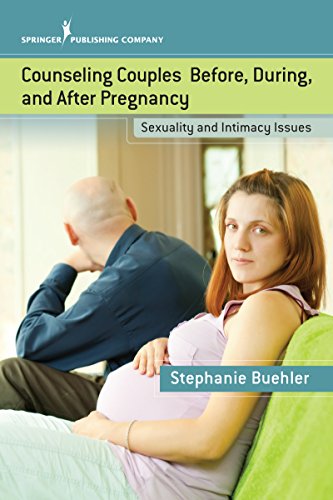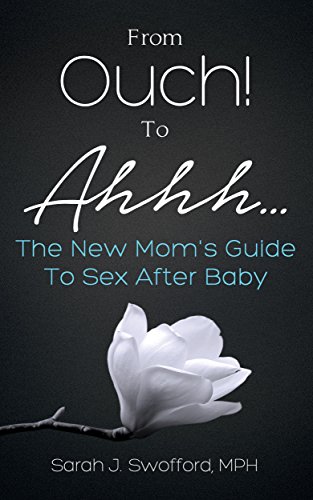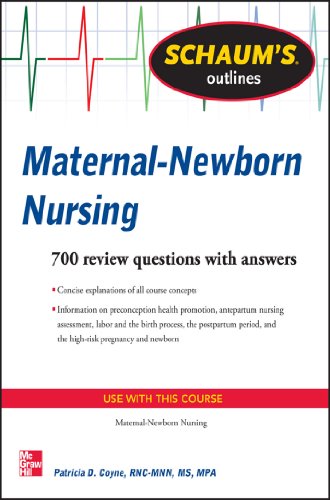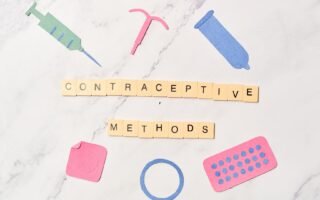When can I resume sexual activity after giving birth? Welcoming a new baby brings many changes—emotional, physical, and relational. If you’re wondering when it’s safe to resume sex after childbirth, you’re not alone. This is one of the most common concerns among new parents, and it’s important to approach the topic with honesty, care, and patience. Every
experience is unique, and there’s no one-size-fits-all answer. This guide is here to help you navigate your way back to intimacy with clarity and confidence.
What is the recommended time frame to wait?
Most healthcare providers recommend waiting about 6 weeks after delivery before resuming vaginal sex. This recommendation allows your body time to:
- Heal from any vaginal tearing or an episiotomy.
- Stop postpartum bleeding (lochia).
- Reduce the risk of infection.
If you had a cesarean section (C-section), the healing timeline may vary, but the same general guideline applies. Always check with your OB-GYN at your postpartum follow-up appointment before resuming sexual activity.
What physical changes might affect my comfort during sex?
Your body has gone through tremendous changes, and some of these will impact how you feel during sex postpartum. Here are some common physical factors:
Vaginal Dryness
Due to hormonal shifts, especially low estrogen while breastfeeding, many women experience vaginal dryness. Using a water-based lubricant can help ease discomfort.
Pain or Tenderness
Even after the 6-week mark, it’s normal to feel sore or sensitive—particularly if you had stitches, tearing, or a C-section scar.
Pelvic Floor Weakness
Weakened pelvic floor muscles can affect your sense of control and pleasure. Kegel exercises can help with strength and bladder control.
How do emotions and mental health impact intimacy?
Postpartum life is often filled with highs and lows. Feelings of anxiety, fatigue, body image concerns, or mood swings can influence your desire and comfort with sex.
Postpartum Depression (PPD)
If you’re feeling persistently sad, overwhelmed, or uninterested in things you usually enjoy (including sex), you may be dealing with postpartum depression. This is common and treatable—talk to your doctor.
Relationship Adjustments
Your dynamic as a couple may change. Open, compassionate communication is essential. You and your partner might need time to reconnect in a new rhythm.
What if I’m not ready yet?
Not feeling ready is completely normal. Some new parents wait months—or longer—before resuming sex. Give yourself permission to take the time you need. Being physically cleared by your doctor doesn’t mean you’re emotionally or mentally ready.
Let your partner know where you’re at. Reassure them that it’s not a rejection, but a need for patience. You can maintain intimacy in other ways—through touch, words, and affection—while giving yourself space to heal.
What should I know about contraception postpartum?
Many people think you can’t get pregnant while breastfeeding or before your period returns. But that’s a myth. You can ovulate and conceive even before your first postpartum period.
Contraceptive Options
Speak with your provider about safe options, especially if you’re breastfeeding. Some include:
- Condoms
- Progesterone-only pills (mini pill)
- IUDs
- Hormonal implants
- Natural family planning (with caution postpartum)
Using contraception early can prevent unplanned pregnancies and help space your children if that’s your goal.
How can I talk to my partner about intimacy after birth?
Honest communication is essential. Start with “I” statements and express how you’re feeling physically and emotionally.
Here are a few ways to approach the conversation:
- “I want to feel close to you, but I’m still healing.”
- “I’m a bit nervous about how sex will feel.”
- “Let’s explore intimacy slowly together again.”
Remember, intimacy isn’t only about sex. Cuddling, massages, meaningful conversations, and small acts of love can all help rebuild connection.
What are some tips for easing back into sex?
Returning to sex after childbirth can feel awkward at first. Here are some gentle tips to make the experience more comfortable:
1. Take It Slow
Start with kissing, touching, or cuddling. Let your body and mind catch up with each other.
2. Choose the Right Time
Aim for a moment when you’re rested (as much as possible), the baby is sleeping, and you’re not feeling rushed or pressured.
3. Use Lubrication
Vaginal dryness is common postpartum. A water-based lubricant can ease discomfort and prevent irritation.
4. Try Different Positions
Some positions may be more comfortable than others. Experiment to find what feels best and puts the least pressure on healing areas.
5. Don’t Set Expectations
It’s okay if things don’t go perfectly. Laugh, talk, and support each other through it. You’re rebuilding—not picking up exactly where you left off.
Should I worry if sex still feels painful after a few attempts?
If you’re past 6–8 weeks postpartum and still experiencing significant pain during sex, it’s important to reach out to your healthcare provider. Some common causes include:
- Scar tissue from an episiotomy or tear
- Vaginal atrophy (especially if breastfeeding)
- Pelvic floor dysfunction
- Infections or irritation
A pelvic health physical therapist or a gynecologist experienced in postpartum recovery can help identify and treat these issues.
What if I just don’t feel sexual anymore?
A decrease in sexual desire postpartum is normal and expected. Between hormonal changes, physical exhaustion, and constant caregiving, it’s common to feel “touched out” or disconnected from your sexual self.
Desire often returns in stages. Start by reclaiming your identity outside of parenting—through rest, self-care, or time alone. When you feel good in your body again, sexual interest may return more naturally.
If the lack of desire persists and it’s affecting your relationship or self-esteem, it might help to talk to a therapist or counselor who specializes in postpartum mental health.
Is it different after each birth?
Yes. Your postpartum recovery experience can vary significantly between pregnancies. You might bounce back quickly after your first baby and take much longer after your second—or vice versa. Each birth, each healing journey, and each relationship is different.
Trust your body, honor your needs, and don’t compare your experience to anyone else’s—even your own past.
Final thoughts: listen to your body and heart
There’s no universal timeline for when to resume sexual activity after childbirth. The key is to honor your healing, communicate with your partner, and return to intimacy at your own pace—physically, emotionally, and mentally.
When you’re ready, take it slowly. Be open, compassionate, and curious about the new version of your relationship and yourself.
You’re not alone in this journey. And you’re doing beautifully.
FAQs
Try using lubricant, going slow, and talking to your doctor. Persistent pain during postpartum sexual activity may require evaluation.
Emotional readiness for postpartum sexual activity varies. Trust your feelings and communicate openly with your partner.
If resumed too early, postpartum sexual activity may lead to discomfort or infection. Always wait for your doctor’s approval.
Yes, but hormonal changes from breastfeeding can cause dryness, which may affect postpartum sexual activity comfort.
Most doctors suggest waiting around 6 weeks after birth to resume postpartum sexual activity, depending on your recovery
References
- American College of Obstetricians and Gynecologists (ACOG). (2020). Postpartum care. Retrieved from: https://www.acog.org/womens-health/faqs/postpartum-care
- Mayo Clinic. (2022). Sex after pregnancy: Set your own timeline. Retrieved from: https://www.mayoclinic.org/healthy-lifestyle/labor-and-delivery/in-depth/sex-after-pregnancy/art-20045661
- Centers for Disease Control and Prevention (CDC). (2023). Family Planning. Retrieved from: https://www.cdc.gov/reproductivehealth/contraception/index.htm
- World Health Organization (WHO). (2022). Postnatal care of the mother and newborn. Retrieved from: https://www.who.int/publications/i/item/9789240045989
- National Institutes of Health (NIH). (2019). Postpartum depression facts. Retrieved from: https://www.nimh.nih.gov/health/publications/postpartum-depression-facts
I’m Cris Coelho, and motherhood has transformed my life!
As a speech therapist and early childhood educator, I’ve always been passionate about child development. But it was becoming a mother that truly opened my eyes to the real challenges and joys of this journey.
Here at Materníssima, I share everything I’ve learned — blending professional knowledge, real-life experience, and a heartfelt touch.
You’re very welcome here! 💕






